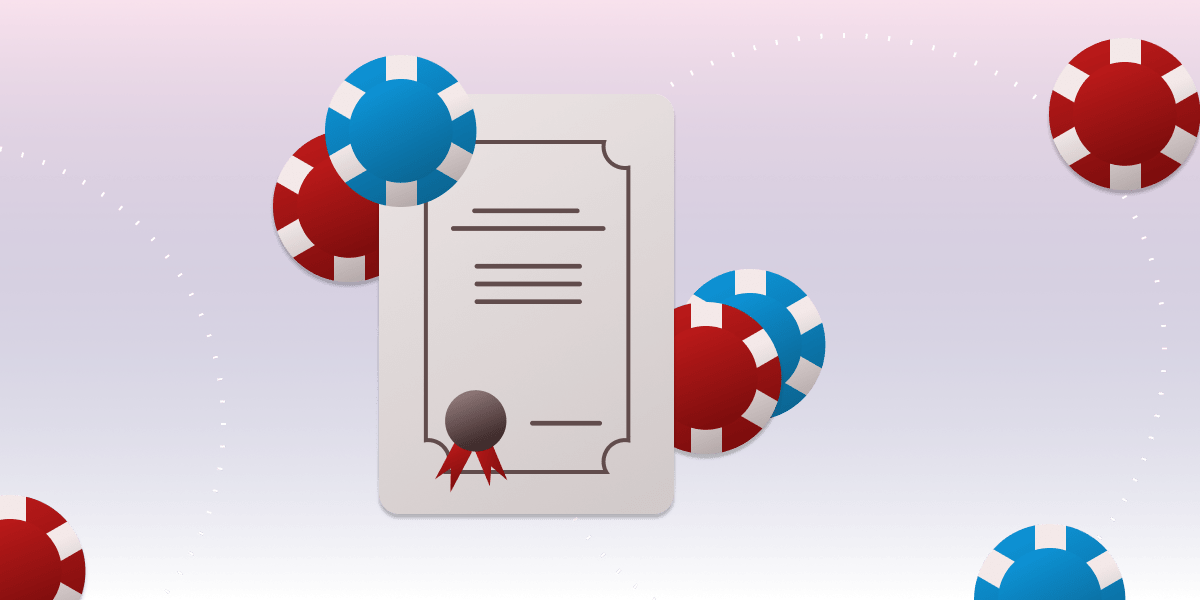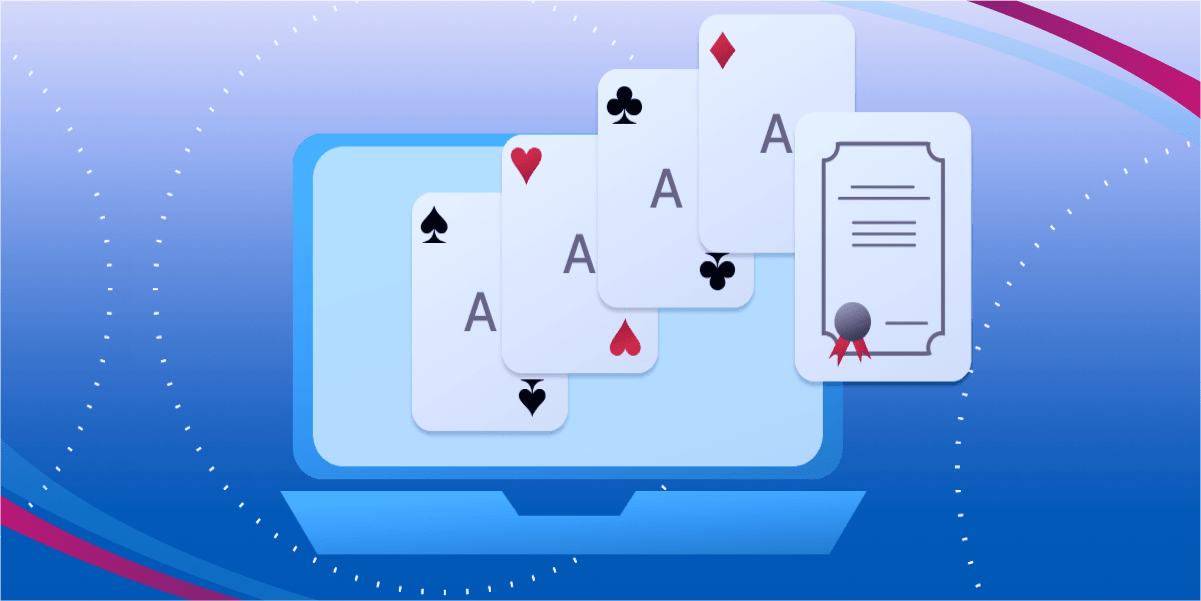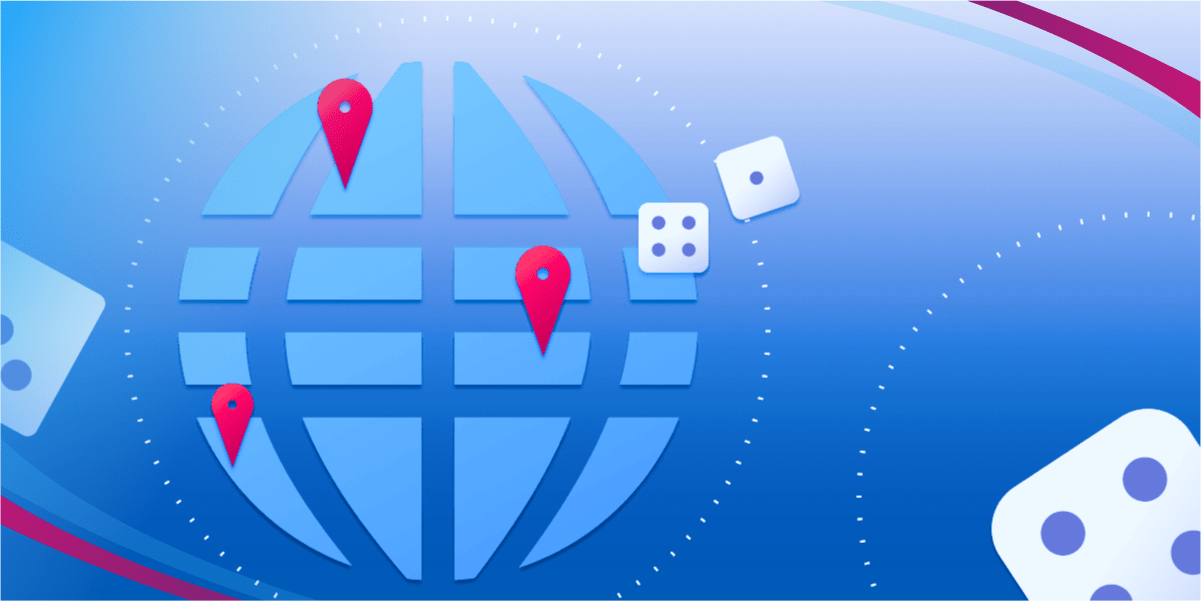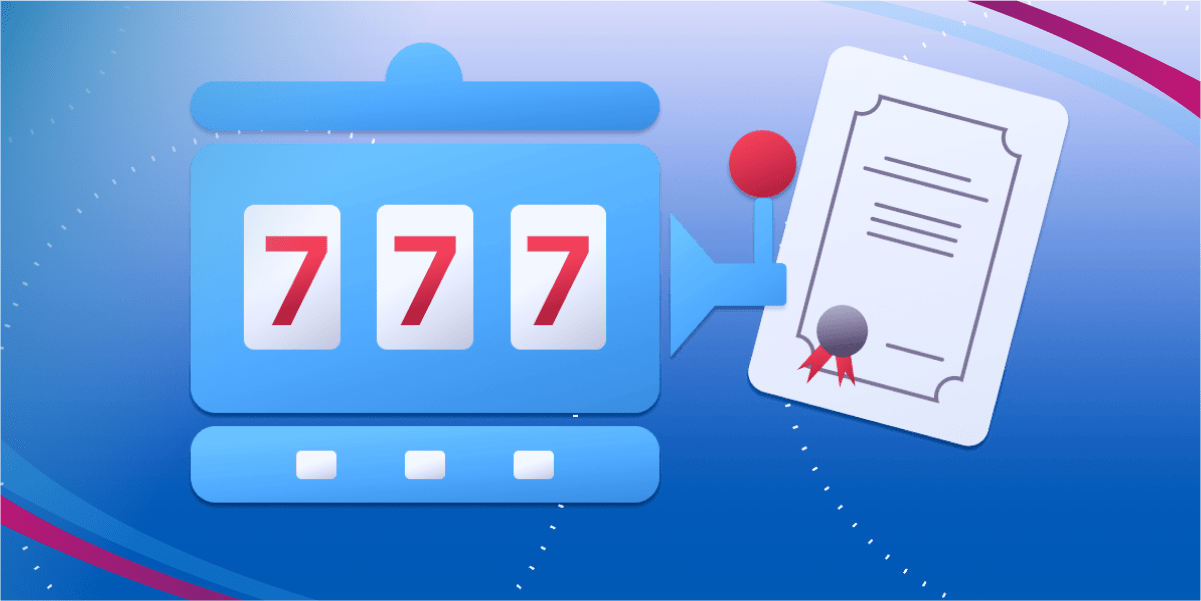
Highlights of the Article
- The procedure for acquiring a license varies by country, generally involving detailed business planning, compliance with responsible gaming practices, and extensive documentation.
- Tax rates and licensing fees differ significantly across jurisdictions like Malta (5% gaming tax), Alderney, Isle of Man (1.5% tax for GGR under £20 million), and Gibraltar (recently reduced to 0.15%).
- Non-compliant operators may face penalties like fines, license suspension, or even criminal charges, particularly in Curacao.
- Gaming licenses enable access to premium software and secure payment systems and help establish player trust.
- GamingLicensing provides expert guidance through the complex licensing process, which can extend up to a year in some areas.
- The documentation required to obtain a license in Curacao includes identity proof, address verification, bank recommendations, income details, and company activity information.
A gaming license for online casinos allows:
- Buying a software from leading manufacturers;
- Customising reliable payment systems on the website that allow receiving payments and getting prize money in various ways;
- Running an honest and legal business;
- Building trust with the audience: players will not deposit their money in a dubious casino that has no license and thus does not guarantee the winnings payment. Moreover, the network has plenty of licensed online sources offering comfortable terms for mutual cooperation.
Rules and regulations
In order to keep the gambling industry transparent, each jurisdiction has a set of rules and regulations that are codified by law. In order to obtain a gambling license, the operator should be compliant both with the law and the license conditions. E.g. for Curacao it’s National Ordinance Offshore Games of Hazard.
The number of rules and restrictions an operator needs to follow may also differ depending on the jurisdiction. For Curacao it includes:
- An operator’s liability to conduct a policy, which prevents a gambling addiction
- The operator must always display a logo showcasing the type of license granted (master license or sub license)
- RNG certification
Enforcement
Any kind of enforcement activities is usually taken to protect the gamblers and keep the high standards of quality and transparency in the e-gambling industry. It may include formal enforcement, financial penalties, license suspension, and criminal enforcement.
Non-compliant Curacao gambling license holders usually experience administrative fines. However, various sanctions (including imprisonment) may be applied.
Gaming control boards
Each jurisdiction has a regulatory body, which regulates the gambling industry in each particular country and grants/denies licenses. The legal names may be different (e.g. gambling commission, gaming association, gambling board etc.) depending on the country but the umbrella term is Gaming control board.
For example, UK Gambling Commission and Curacao e-Gaming Licensing Authority are both gaming control boards.
The Curacao e-Gaming Licensing Authority received responsibility to regulate an online gambling industry from Curacao Ministry of Justice in 2002. Before that, it was controlled by the Curacao Gaming control board.
How to get a license for online casinos?
Getting a license is a crucial step. Gambling business is a specific niche area that is not favoured in all countries, to say the least. Therefore, in order not to violate the local law and be able to conduct a legal business, it is vital to have a licence that grants permission from a relevant jurisdiction, a jurisdiction that is more loyal to online casinos. Each country has its own requirements, as well as the cost of the licence. One of the most profitable and reliable options available today is in Curacao, where you can get a gaming licence for an online casino remotely.
The Curacao license registration procedure is performed if all the necessary requirements are initially met, including the opening of a local company within the territory of the relevant jurisdiction.

Professional assistance in obtaining a license for online casinos
In some other cases, the paperwork for a gambling license can take up to a year. GamingLicensing offers expert help of professionals, who are already familiar with all the nuances of license registration process in most reliable and stable jurisdictions.
How and Where to Obtain a License?
Securing a gambling license is a vital aspect of operating a successful online casino. It entails several steps, including thorough business planning, a suitable corporate structure, and meticulous preparation of documentation. It also involves demonstrating a clear understanding of responsible gaming practices and a commitment to player protection. Our experts at GamingLicensing will guide you through each of these steps, ensuring that your application adheres to all the necessary criteria and increases your chances of approval.
Two jurisdictions that are particularly attractive to operators are Malta, with its stringent regulatory framework, and Curacao, renowned for its cost-effectiveness. Our experienced legal experts will simplify the process of obtaining a license from the Malta Gaming Authority or the Curacao eGaming licensing body. The former requires strict compliance checks, ensuring your operation’s credibility and trustworthiness. Navigating through this process may seem complex, but with GamingLicensing at your side, you’ll have the expertise to steer through the process with relative ease and confidence.
On the other hand, the Curacao eGaming license is particularly appealing for start-ups and smaller businesses due to its affordable fees and relatively straightforward application procedure. Truth be told, this process is en route to change and will include some additional checks and cost changes, but it will remain the go-to option for many new and existing operators. Those who are already in possession of a Curacao gambling license will be given the opportunity to make a smooth transition to the new regulatory scheme with the assistance of GamingLicensing.

How to Select Jurisdiction
Choosing an appropriate jurisdiction for obtaining a gambling license is a critical decision that impacts several aspects of your online casino operations. It can influence factors such as operational costs, tax obligations, and market access. Here, we provide some important features and highlights of popular gambling jurisdictions:
- Curacao — The jurisdiction offers a single license covering all types of gaming products, including sports betting, online casinos, bingo, and more. In the future, the Curacao Gaming Authority (CGA) will oversee the licensing of operators.
- Malta Gaming Authority — Known worldwide, this regulator features stringent AML and other regulatory checks and audits, including system audits, financial management system checks, and more. The highly reliable license from MGA ensures a presence in numerous markets. The gaming tax in Malta is 5% of the gaming revenue generated from the gaming service.
- Alderney Gambling Control Commission — This jurisdiction is recognised for its high standards of regulation and player protection. It offers two categories of licenses, making it suitable for various types of gaming businesses. The licensing procedure includes sending an application, paying an initial investigation deposit of £10,000, and securing approvals from the Internal Control System (ICS) for the gambling equipment, financial assets, and more.
- Isle of Man Gambling Supervision Commission — The Isle of Man provides a range of licenses, including a full license and sub-licenses. The jurisdiction boasts excellent infrastructure and supportive e-gaming legislation. For GGR not exceeding £20 million per year, the tax rate is 1.5%.
- Gibraltar Licensing Authority — Gibraltar is attractive for its advanced infrastructure and favourable tax regime that has recently been cut to just 0.15% from the original 0.85% for both sports betting and casino gambling. It’s stringent about its requirements, resulting in a high level of trust in its licenses.
- Kahnawake Gaming Commission — This Canadian jurisdiction is respected for its fair approach to licensing and its commitment to player protection. However, it has recently been challenged by the iGaming Ontario licensing regime and put in a disadvantageous position. Kahnawake provides attractive hosting solutions and a hands-on dispute resolution process. The application fee is rather high, at US $40,000.
- UK Gambling Commission — As one of Europe’s most respected gambling regulators, it grants operators access to the vast UK market. The licensing process is strict, ensuring the highest standards of player protection and fairness.
- Swedish Gambling Authority — This authority is attractive for access to the Swedish market. It’s known for its stringent player protection measures and focus on responsible gambling.
Leading Gambling Jurisdictions in the World
There are several gambling jurisdictions that can ensure millions of players around the globe are offered safe and fair gaming. Here are the most notable ones in the iGaming industry at the moment:
Curacao — Curacao’s eGaming is the country’s main regulator that issues a one-for-one type of license, which allows the licensee to operate online casinos, sportsbooks, bingo, or any other kind of sanctioned gambling business. It oversees the gaming software of these casinos to ensure their safety and randomness while also checking their legal and financial documentation.
- Documentation:
- A copy of a document confirming the beneficiary’s identity
- Address confirmation (utility bills not older than 2 months before company registration)
- Recommendation from the bank
- Information on incomes, application
- Information on the company’s activities and software
- License requirements:
- Company registration certificate in the Chamber of Commerce of the Antilles
- License fees
- Physical address in Curacao
- Hosting service, etc.
- Time to market: 8–12 weeks
Malta Gaming Authority — The Malta Gaming Authority, or the MGA, was established in 2001 to oversee and control all gambling activities in Malta, including remote-operated casinos, sportsbooks, lotteries, and more. The MGA issues four licenses that differ based on the type of gambling vertical you wish to operate in. The regulator is also in charge of controlling the fairness of games in gambling venues and ensuring the players’ safety at all times.
- Documentation:
- Business plan
- Company registration
- Site policies
- Proof of origin of funds
- Resumes
- Certificates for games
- License requirements:
- Non-refundable fixed annual license fee
- Compliance contribution
- Specific administrative fees.
- Time to market: Around 6 months.
Alderney Gambling Control Commission — The Alderney Gambling Control Commission was established in 2000. It regulates eGambling on behalf of the State of Alderney. The commission is mandated to construct the licensing procedure, focus on player protection and game fairness, etc.
- Documentation:
- Business plan and proposed gambling operations
- Potential business and executive associates, including third-party software providers
- Meeting with corporate entities involved in the application
- Key individual certificates
- An internal control system
- Certificates for the gambling equipment
- The licensee’s capitalisation status
- License requirements:
-
- Alderney registered company
- Notice of application published in the Alderney Gazette
- Signed copy of the application form plus any relevant supporting documentation
- Payment to the AGCC of the initial investigation deposit of £10,000
- Time to market: 3–4 months
Isle of Man Gambling Supervision Commission — The Gambling Supervision Commission is an independent statutory board established in 1962 in the Isle of Man with the purpose of licensing and regulating land-based and online gambling operations. Not only does the commission license the operators, but it also ensures that the gambling industry is crime-free, that minors are protected, and that license holders pay the winnings.
- Documentation:
- Business plan
- Description of offered games
- Third-party RNG certificate
- Software description and Technical System Testing report
- Target market description
- Confirmation that servers are located on the Isle of Man
- Confirmation of absence of a criminal record
- Copies of IDs or passports
- Bank references
- Utility bills
- License requirements:
- The company incorporated on the Isle of Man with two resident directors
- Game servers located on the Isle of Man
- RNGs and gambling systems certified by an approved independent software testing house
- Time to market: 10–12 weeks

Gibraltar Licensing Authority — Under the Gambling Act of 2005, the Gibraltar Regulatory Authority has been charged with issuing remote gambling licenses, making sure licensees pay out the winnings, checking whether they adhere to customer and data protection rules, and ensuring that the gaming licensed under its jurisdiction is fair.
- Documentation:
- A copy of the gambling business license and financial reports
- Identity documents
- Letters of recommendation from banks and financial institutions
- Proof of solvency
- License requirements:
- Company registered in Gibraltar
- Proven experience in the industry
- Bank accounts in Gibraltar
- Fully paid duty
- Time to market: 6 months
Kahnawake Gaming Commission — The Kahnawake Gaming Commission is a gambling regulator that issues licenses to those operators who wish to operate a gambling business from the Mohawk territory of Kahnawake. As a result, they have access to the vast Canadian market. The Kahnawake Gaming Commission has been around since 1996 and issues four types of licenses.
- Documentation:
- Original certificate of no criminal record
- Original bank references
- Copies of utility bills
- Game software details and certificates
- License requirements:
- Application for Client Provider Authorization (CPA) license
- Business Entity Information Form
- Personal Information Form
- Control System Submission
- Key Persons permit
- Time to market: 8+ weeks
UK Gambling Commission — The UK Gambling Commission is one of the biggest iGaming regulators in the business, tasked with overlooking all forms of gambling offered to British citizens. By the powers vested to it by the Gambling Act of 2005, the UKGC controls gambling in the country, issues licenses, works to protect minors, combats money laundering, and ensures all gambling activities are fair and safe. It has strict rules and standards for licensing, which gives its licensees extra credit in the iGaming world.
- Documentation: Meeting detailed Licence Conditions and Codes of Practice
- License requirements: As per LCCP
- Time to launch: 16 weeks
Swedish Gambling Authority — The Swedish Gambling Authority replaced the Lottery Gambling Authority with the enactment of the new Gambling Act in 2018. This authority controls all forms of legal gambling in the country, including casinos, sports betting, lotteries, bingo, and others. Online casino and sports betting are open to renowned operators, while land-based casinos are state-owned. An online license holder from outside the country who doesn’t reside in the European Economic Area (EEA) must have a local representative in Sweden. A license for online commercial gambling costs SEK 400,000, and so does a license for online commercial sports wagering. Should an operator choose to obtain both, a combined fee of SEK 700,000 can be paid.
- Documentation:
- Technical documentation
- Personal documents
- Financial assets
- License requirements:
- Full compliance with the gambling laws of Sweden
- Time to launch: Depending on the type of license
Why Do I Need a License?
An online gambling license serves as a cornerstone for the successful operation of any online casino. Here are the key reasons why an online gaming license is a must:
- Legitimacy and trust: A license portrays the operator as a credible and trustworthy entity. In a competitive market, it is an effective tool to differentiate your casino from unscrupulous operators.
- Regulatory compliance: Operating within a licensed framework ensures adherence to local and international laws, safeguarding against legal risks.
- Access to key partners: Providers of gaming software and payment solutions prefer to partner with licensed operators, enhancing your casino’s offering.
- Market access: Certain markets restrict unlicensed casinos. A license ensures access to key jurisdictions, broadening your player base.
- Dispute resolution: Licensing authorities provide a structure for fair dispute resolution, fostering customer confidence in your casino.
- Player protection: A licensed casino demonstrates a commitment to fair play and responsible gaming, which is critical for attracting and retaining players.
An online gambling license is an essential component of any serious gaming operation. It underscores your commitment to legality, fair play, and customer protection, and it significantly enhances your business’s credibility. Operating without a license exposes your business to severe consequences, such as legal action, heavy penalties, damage to your reputation, and the loss of vital partnerships. It’s a gamble that could end up costing more than what you stand to gain. Prioritise acquiring a license to pave the way for a prosperous and, above all, legitimate gaming operation.
2023 Updates
The year 2023 has brought about significant changes in the gaming license landscape, particularly in jurisdictions such as Curacao. These developments are reshaping the regulatory framework and licensing procedures in what was once considered one of the most lenient jurisdictions out there.
Namely, the introduction of the National Ordinance for Games of Chance (LOK) in Curacao signifies a significant overhaul. This legislation enhances standards for anti-money laundering, fraud prevention, and player protection. Pending the ascension of LOK into law, the new Curaçao Gaming Authority (CGA) will be established to oversee the industry.
A vital feature of the new regulation is the compulsory use of digital seals on operators’ websites, serving as a mark of compliance and authenticity. Moreover, the current Curacao operators must transition to the new system by March 31, 2024.
In the meantime, Curaçao’s Gaming Control Board (GCB) has opened the application process for operators looking to obtain online gambling licenses from the regulator. The portal was launched on November 1st, 2023, and details the entire application process, including the higher licensing standard.
FAQ
-
What does a casino license allow you to do?
Gambling companies that have a legal license for offering gambling services to people can buy legal software from leading software companies, offer reliable payment methods in many currencies and forms, establish trusted relationships with the players who will, in turn, know their payments and winnings are safe and guaranteed.
-
Who controls gambling in a country?
Each jurisdiction (or country) has its own regulatory measures and laws pertaining to gambling that are regulated under the so-called Gaming Control Board. Gaming control boards come under different names and can be referred to gambling commissions, associations, board, etc.
-
What are some frequent rules and regulations you need to follow to obtain a license?
Each jurisdiction has specific rules, but the most common rules you need to abide by instruct gambling sites to conduct a Responsible Gaming policy that prevents gambling addiction, visibly displays the logo of acquired licenses, and provides an RNG certification stamp that vouches for the regularity and fair outcomes of games.
-
How to obtain a casino license?
To get a casino license, you need to get informed about local gambling laws in the country where you want to run a legal gambling business. The entire process can be simplified with some help from professionals in the field. One such example is GamingLicensing that can tell you more about the cost of licenses, the paperwork you need to submit, and the nuances related to the licensing process.

